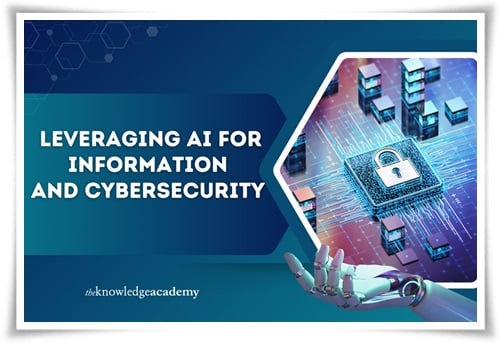
Did you know that by 2025, cybercrime is projected to cost the world over $10.5 trillion annually? This startling statistic underscores the urgent need for robust cybersecurity measures and highlights the role of emerging technologies like Artificial Intelligence (AI) in mitigating these risks. As we delve into the transformative potential of AI in cybersecurity, professionals should stay ahead of the curve by enhancing their skills through the CISM Course as we explore the transforming potential of artificial intelligence in cybersecurity. However, navigating CISM Difficulty is no small feat.
Let’s explore how artificial intelligence can enhance threat detection and response and shift the cybersecurity landscape from reactive to proactive measures against digital threats. Are you ready to see how AI is reshaping the field of information security?
Understanding the Role of AI in Cybersecurity
What is artificial intelligence, therefore, doing in cybersecurity? Fundamentally, artificial intelligence excels at rapidly and effectively analysing enormous volumes of data. In cybersecurity, identifying trends and anomalies can make the difference between a compromised system and a safe one.
Artificial intelligence systems are designed to learn from data, identify trends, and make judgements with minimum human involvement. Throughout this learning phase, large datasets are sent to the system so that it may develop from past events and raise its predictive capacity. Artificial intelligence can examine traffic data, for example, to find odd trends that would suggest a possible security risk.
What are the benefits of using AI for Information and Cybersecurity? Let’s see below:
Enhancing Threat Detection and Response
The ability of artificial intelligence to improve threat detection is among its most important benefits for cybersecurity. Often based on known danger databases or past definitions, traditional security systems can rapidly become outdated. But artificial intelligence constantly learns and changes, more precisely identifying new and developing risks.
Moreover, artificial intelligence can automatically react to threats, drastically lowering response times. Time is often crucial in cybersecurity since quick reaction times help stop the spread of security breaches. AI-driven solutions control the danger before it spreads by automatically preventing a suspected activity or separating impacted systems.
Predictive Capabilities and Proactive Security
Beyond only reactive solutions, the predictive power of artificial intelligence is turning cybersecurity from a reactive to a proactive field of study. Artificial intelligence helps companies strengthen their defences before an assault by examining trends and projecting areas of weakness.
AI can, for instance, forecast which kinds of phishing emails are most likely to fool consumers, enabling companies to better customise their defensive systems and training courses. By means of proactive security measures, companies can remain one step ahead of cybercrime.
Challenges and Considerations of AI
Although artificial intelligence offers great advantages for cybersecurity, there are also major issues and questions to address. One of the main issues is the ethical application of artificial intelligence. Ensuring that artificial intelligence systems follow ethical standards becomes critical as they become more independent. Furthermore, at risk are artificial intelligence systems being controlled by malicious players to evade security protocols.
Moreover, depending solely on artificial intelligence can lead to complacency. Human supervision is vital since artificial intelligence systems may produce false positives or miss complex risks. Maintaining a balanced approach whereby artificial intelligence enhances rather than replaces human knowledge is essential.
The Future of AI in Cybersecurity
The future integration of artificial intelligence in cybersecurity is expected to become more profound. As machine learning and neural networks progress, artificial intelligence systems will grow ever more complex and vital to cybersecurity plans. Companies that can successfully integrate artificial intelligence into their cybersecurity systems will probably be better suited to negotiating the challenging threat environment of the digital future.
Conclusion
Using artificial intelligence in cybersecurity has transformed power. It changes the cybersecurity paradigm from reactive to proactive, improving detection and response to attack capability. As we continue using artificial intelligence to predict and stop threats, it is evident that the future of cybersecurity is not only about defence against them. Courses from The Knowledge Academy can help professionals stay at the forefront of these AI-driven cybersecurity innovations. Join and explore these courses to improve your skills.
Leave a Reply
You must be logged in to post a comment.